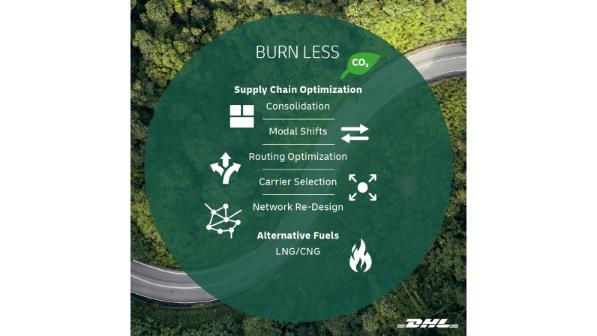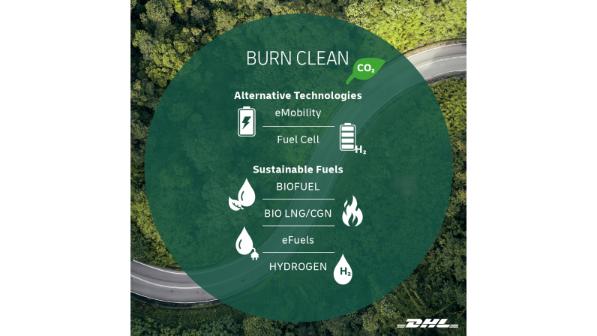Sustainability is increasingly important, and companies are actively looking for ways to reduce their carbon footprint overall and in logistics too. International transportation contributes around 14% of total carbon emissions, which is why we at DHL, along with our customers, are always considering new ways to reduce the carbon footprint in logistics.
Something I’ve been thinking about recently is our decision-making process when faced with a range of methods to reduce environmental impact. At home, I have decided to use some methods but not others, depending on how this suits my life. For example, because I have sufficient space for separate bins, I sort various items for recycling but as I have only limited shelf space, I tend not to buy in bulk to reduce packaging.
In business, companies must make similar decisions. Today there are many different ways to burn less (increasing carbon efficiency) and tomorrow there will be many different ways to also burn clean (achieving decarbonization) but which ones will be the best fit for your organization?
No single approach to green logistics
There is no single approach that companies should take to reduce their carbon footprint in logistics. Instead, there are many valid approaches because each organization is different – with specific supply chain setups as well as varying needs for speed in transportation. Life sciences and healthcare products will typically need to move faster from A to B than, say, a shipment of chemicals and this will make some methods appropriate for one company but less suited to another.
So, ideally each company should have a clear view of their supply chain and know about the available approaches to carbon reduction. The next step is to review all available carbon-cutting levers to see how these fit their business needs and operations. During this process, it may be necessary to make a few sacrifices. Some levers are likely to emerge as particularly powerful for the business, and these are the ones that should be prioritized.
Reviewing all available levers
The graphic below provides an excellent framework for reviewing the most important levers. We’ve selected these levers on the basis of their potential to reduce the carbon footprint and because they are currently available or predicted to become available and implementable within the foreseeable future.

Cutting carbon today
Highly effective ways of reducing carbon today include a whole range of supply chain optimization levers – consolidation, modal shifts, routing optimization, carrier selection, and network redesign – as well as the use of alternative fuels such as liquefied natural gas and compressed natural gas. And, of course, companies can also use carbon offsetting initiatives to green their logistics.

Why go looking for the latest logistics trends and business insights when you can have them delivered right to you?
Burning clean tomorrow
Coming up in the near future, companies will be able to make greater use of alternative technologies such as e-mobility solutions and new, green fuel cells. There is also likely to be a broad range of sustainable fuels, including biofuels (some of which are already available today), bio versions of natural gas, e-fuels, and hydrogen.

As several of these levers might prove very useful to your organization, I’ll be sharing more insights in future blog posts. If you’d like some more details, please get in touch with our GoGreen team.
Published: February 2021
Images: Shutterstock







